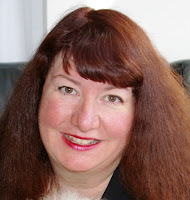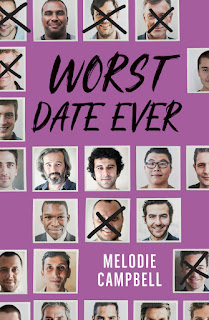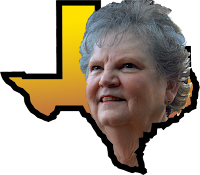Family Fortnight + Leading up to the International Day of Families on the 15th of May, we bring you the fifteenth in a series about mystery writers’ take on families. Settle back and enjoy!
by B.K. Stevens
 |
| one of our bat mitzvah invitation covers |
Like
most parents, my husband and I wanted to create a close, loving family
with our children. So we had long, chatty dinners around the kitchen
table and made reading out loud at bedtime a nightly ritual. We went on
lots of outings, too, from picnics in the park to a Beach Boys concert
at the county fair, from frequent visits to the public library to trips
to national monuments ranging from the Lincoln Memorial to Mount
Rushmore. And we always made a big deal about birthday and holiday
celebrations.
My husband, Dennis, and I cherished all those experiences,
and I know our daughters did, too. When I think about the times that
really made us into a close family, though, I think about times when we
all worked on a project together. For example, when our older daughter,
Sarah, had her bat mitzvah, we decided to do all the cooking and baking
ourselves, and we also decorated homemade invitations, using a
string-painting technique our younger daughter, Rachel, had learned in
kindergarten. Everyone enjoyed working together so much that we did the
cooking, baking, and invitation-making again for Rachel's bat mitzvah.
When I was volunteering as principal of the religious school, we all
worked on costumes and props for the annual Purim plays. And, of course,
we also plotted the occasional murder together.
 |
| my first published story |
I
didn't start writing mysteries until Sarah was about three, and at
first I didn't take it seriously. One idea for a mystery plot had been
gnawing away at me for a while, and I decided to play around with it for
a few weeks before getting back to more serious pursuits such as
grading freshman compositions and tracking down AWOL My Little Ponies.
If Dennis had said one discouraging word to me during those early days,
if he'd made one snide remark about mysteries or one comment about the
amount of time I was wasting on a novel I'd never finish, I'm positive I
would have given the whole thing up immediately, embarrassed I'd ever
attempted something so out of character for me. But he didn't.
From the
first moment, he was encouraging and enthusiastic. He had ideas about
how to develop characters more fully, about how to add twists to the
plot and depth to the themes. And every evening, he wanted to read what
I'd written. I finished the novel. Naturally, nobody had any interest in
publishing it, but by then I was hooked on writing mysteries, and I
decided to give short stories a try. The first few went nowhere, but in
1987– the same year our younger daughter was born–
Alfred Hitchcock's Mystery Magazine accepted "True Detective."

Dennis
continued, and still continues, to read everything I write– usually,
several drafts of everything I write– and to make suggestions that
always improve those drafts immeasurably. For a while, though, I didn't
tell our daughters much about the stories I was writing. After all, they
were so young, so innocent, so vulnerable– I wanted them to be
daydreaming about rainbows and kittens, not arsenic and blunt
instruments.
When Sarah was seven,
Woman's World accepted a story
I judged tame enough for her to read. It centered on a jewel theft, not
a murder, with no trace of violence either described or implied. She
liked the story and rewarded me with the lovely note you see here. (Of
course, since this was a
Woman's World story, it wasn't published under the title I'd given it.
Woman's World chose to call it "Baby Talk"– why, I'll never know.)
As
the years went on, I began letting the girls read more of my
stories– first Sarah, then Rachel– and mysteries became a frequent topic
of family discussions. When I ran into a plot snag or some other
problem, I'd bring it up at the dinner table, and everyone would offer
suggestions.
Once, when Rachel was nine, I needed to think of a place
where a character could hide a small camera. Rachel said she could sew
it up inside a stuffed animal. Good idea. Rachel was thrilled when the
May, 1996
AHMM came out, and the illustration for the story
showed an oversized stuffed bunny propped against a bed pillow. A couple
of years later, Sarah mentioned an old Jewish folk custom she'd read
about, and I thought it might make an interesting clue. That inspired
the first story in my Leah Abrams series for
AHMM. To acknowledge
my daughters' contributions to that story and others, I gave Leah
clever young daughters named Sarah and Rachel. When I wrote the second
story in that series, I was stuck for a closing line. Rachel helped out
by suggesting a witty, subtly snarky remark a character could make.
Naturally, she assigned that remark to her namesake. It
did sound
like something Rachel would say, so I honored her choice. And both
girls helped out eagerly when I wrote a story set at a high school,
bringing it to life by supplying plenty of examples of disciplinary
absurdities and letting me know when my slang was out of date.
 |
| Rachel |
Even
after the girls went to college, the consultations continued– they
continue to this day. I e-mail drafts of every story to them, and they
respond with criticisms, compliments, and suggestions. No one could ask
for sharper, more perceptive beta readers. They've contributed story
ideas, too, and sometimes told me about nasty people they've met, people
who have ended up as victims or murderers. (People should think twice
before being mean to one of my daughters.) And, as they've developed new
areas of expertise, I've often consulted them for information.
If I had to pick one work that truly was a family project, it would have to be my first published novel,
Interpretation of Murder (Black
Opal Books, 2015). Sarah has always been fascinated by American Sign
Language– while she was still a teenager, she took evening courses at
the local community college and earned her state certification as an
interpreter before graduating from high school. She continued her study
of ASL during and after college and is now a nationally certified
interpreter.
About eight years ago, she suggested I write a story about
an interpreter working at a murder trial. She helped me develop the plot and devise clues related to sign language, and she gave me plenty of
background information to make the story more realistic, everything from examples of ASL idioms to details about how interpreters dress. The
story appeared in
AHMM and won a Derringer. (Well, half a Derringer– it was a tie.) It's now also self-published as an Amazon single, under the title
"Silent Witness."
(Rachel took charge of the self-publishing process, since I lack the
technical expertise to do it myself; she also handles the technical side
of my blog, The First Two Pages. Anyway, I finally got to use the title
I'd chosen for that first
Woman's World story.)
I
liked the protagonist of "Silent Witness," Jane Ciardi, so much that I
began thinking of writing a novel about her. The project involved a
number of challenges, but luckily I had family members who could help
with every one of them. I wanted Jane's profession to be integral to the
plot, not just a job she goes to from time to time while investigating
crimes as an amateur sleuth. The whole family helped generate ideas, and
Sarah recommended books I should read and provided helpful examples
from her own experiences. Once I started writing, she scrutinized every
page, checking to make sure the book provides readers with genuine
insights into Deaf culture and ASL interpreting.
Other challenges involved setting. Our family was living in Cleveland when I wrote the
AHMM
story, so I set it there; I wanted to set the novel in Cleveland, too,
but Dennis and I had moved to Virginia. Rachel was living in Cleveland,
though– she went back there after graduating from college to spend a few
years with old friends while studying interior design and working
part-time. So Rachel became my consultant on all things Cleveland,
checking out locations when my memory and Google came up short.
For
example, I needed a semi-spooky setting for a tense confrontation
between my protagonist and a volatile, sometimes violent suspect. Rachel
suggested Squire's Castle, an abandoned shell of building that's now
part of the city park system. It's supposed to be haunted, and that, of
course, adds to its charm. Perfect. Also, Rachel's part-time job was at
an upscale fitness center. When Dennis and I visited the center and
listened to Rachel's stories about the people she met there, I decided a
fictionalized version of it could play an important role in the novel,
as a place some characters suspect to be a front for shady goings-on.
Rachel helped me with the layout of my fictionalized center and supplied
many details to make descriptions of it more realistic.
 |
| Squire's Castle |
But I also had problems with my protagonist. In the
AHMM
story, Jane Ciardi is perceptive but passive. She's intelligent and
observant enough to realize something is amiss at the trial, but when
she has a chance to try to set things right, she loses her nerve, hoping
the jury will reach the right verdict even if she does nothing. The
story ends with her decision to stay silent. I thought that made Jane an
interesting, believable character for a stand-alone story. But readers
expect amateur sleuths in mystery novels to be made of sterner stuff. I
had to toughen Jane up. So I made her into someone who's learned from
her mistakes and resolved she'll never again let fear keep her from
doing what's right. As a concrete way of underscoring the idea that Jane
is now someone who fights back, I decided to make her a martial artist.
 |
| Dennis |
Luckily,
I had a resident expert to help me describe the martial arts class Jane
is taking and her occasional run-ins with hostile sorts. Dennis is a
fifth-degree black belt in
sogu ryu bujutsu and has also studied
over half a dozen other martial arts. He'd helped me with action scenes
in several stories– for example, in the Iphigenia Woodhouse stories,
Harriet Russo is a black belt who sometimes tosses a suspect aside– but
this was by far our most ambitious project to date. We were determined
to describe every class, every confrontation in realistic detail.
Since
I'm not a martial artist– not by a long shot– we decided we had to act
scenes out so I could understand them well enough to describe them. The
process sometimes got uncomfortable. Dennis is the expert, so he always
played the role of the person who twists arms and lands kicks, forcing
the other person– that would be me– to the ground. He was always careful
and never delivered full-force punches; even so, I received frequent
reminders of why I'd long ago decided I never, ever wanted to study
martial arts. We usually had to act moves out several times, pausing
often so I could jot down notes about how to describe something.
 |
| my husband clobbering kid |
It
was a lot of work and not always a lot of fun, but we were pleased with
the way the scenes turned out– so pleased I decided to write a novel in
which martial arts would play an even more central role, a young adult
mystery called
Fighting Chance (Poisoned Pen Press, 2015). This time, the featured martial art was
krav maga,
the Israeli self-defense system Dennis was studying at the time.
 |
| Dennis beats up another little kid |
Once again, he took charge of the choreography, and after the book was
published, he visited middle schools and high schools with me to promote
it. I talked about elements of characterization, and he demonstrated
krav maga
techniques.
Guess which part of the presentation students enjoyed more. I'm happy to say that when he demonstrated those techniques, Dennis used student volunteers as his victims, nor me.
Dennis also comes to conferences with me, to help force bookmarks on passersby
and give me pep talks before panels. Our daughters have gotten involved
with promotion, too.
 |
| Rachel and guests at the Agatha banquet |
For example, when I gave an Authors' Alley
presentation about
Interpretation of Murder at Malice Domestic in
2015, Sarah came to Bethesda to do some on-the-spot interpreting and
answer questions about sign language.
The next year,
Fighting Chance was nominated for an Agatha, and so was an
AHMM
story, "A Joy Forever"– and the day before I planned to leave for this
once-in-a-lifetime, double-nomination Malice Domestic, I had a bad fall,
breaking my right arm and seriously injuring my right leg. The doctor
declared surgery essential and travel insanely reckless, so Malice was
out of the question. Dennis, of course, stayed with me to help me
through. We called Rachel, and she stepped in to host our table at the
Agatha banquet. (Like Sarah, Rachel lives in Maryland now, so we're all
within a few hours of each other– we're close geographically, as well as
in other ways.) Several guests wrote to me later to say what a charming
hostess Rachel had been. She even got a list of names and addresses, so
we could mail guests the table favors we'd planned to bring to
Bethesda.
 |
| where it all began |
|
|
So if you want to create a close family, here's my advice: Put your kids
to work. Work alongside them, all striving to reach a common goal.
Sadly, I'm not sure of how well this approach works if the goal is
cleaning out the garage. But it works fine if the goal is something
everyone will enjoy, such as string-painting invitations or plotting the murder of a rigid, unreasonable high-school principal. Seriously,
though, I think writers who are parents often worry that their work will pull them away from their families, that their children will resent
hours spent toiling at the word processor instead of playing in the
park. If we find ways to involve our children in our work, though, I
think that brings us closer. Playing together is important– we always
need to find time for that. But working together may be an even more
potent way of creating deep, lasting unity.
Midwestern Mysteries, the current issue of
Mystery Readers Journal, contains my article about the role Cleveland plays in
Interpretation of Murder. I hope you get a chance to check out
"Cleveland: Drownings, Ghosts, and Rock and Roll."













































